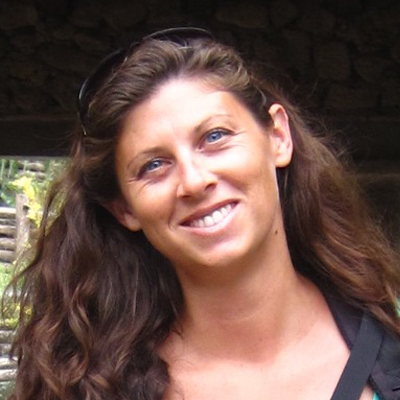Emily Klein
Senior Post-Doctoral Associate
Biography
 Broadly, Emily Klein is interested in better understanding the dynamics, structure, and resilience of coupled human-natural systems through time and space, and how that knowledge can guide decisions and policies for the well-being of ecological and human communities. In particular, Emily explores complex dynamics, including chaos, and how ecosystem models can help us understand and manage coupled human-natural systems. Previously, she has used time series analysis, nonlinear modeling approaches, and agent-based models to assess ecosystem change and understand resource user behavior, and most recently employed ecosystem models to provide scientific advice to the international management of Antarctic krill fisheries. Finally, she is also deeply concerned about social justice and increasing diversity, inclusion, and equity in STEM fields.
Broadly, Emily Klein is interested in better understanding the dynamics, structure, and resilience of coupled human-natural systems through time and space, and how that knowledge can guide decisions and policies for the well-being of ecological and human communities. In particular, Emily explores complex dynamics, including chaos, and how ecosystem models can help us understand and manage coupled human-natural systems. Previously, she has used time series analysis, nonlinear modeling approaches, and agent-based models to assess ecosystem change and understand resource user behavior, and most recently employed ecosystem models to provide scientific advice to the international management of Antarctic krill fisheries. Finally, she is also deeply concerned about social justice and increasing diversity, inclusion, and equity in STEM fields.
At the Pardee Center, Emily will be working to understand where and when complex and chaotic dynamics occur in coupled human-natural systems over space and time, how are they coupled and entangled within and across those systems, and the implications of these dynamics for theory and policy. She will also be working with colleagues in the CHANS program to synthesize work using ecosystem models, and exploring how the broader use of such models have assisted both our understanding of coupled systems and our progress on ecosystem-based management. Emily and her colleagues will employ what is learned on both dynamics and system models to improve forecasting and decisions support tools for policy advice in the future.
Emily received a BSc in Ecology, Behavior, and Evolution from the University of California, San Diego, in 2003, and a MSc in Environmental Conservation from the University of New Hampshire in 2008. Her PhD, from the University of New Hampshire’s Natural Resources and Earth Systems Science Program in 2013, explored changing dynamics in marine fisheries of the Bay of Fundy (Canada) over 150 years. Emily also co-chairs the International Council for the Exploration of the Sea (ICES) Working Group on the History of Fish and Fisheries (WGHIST).